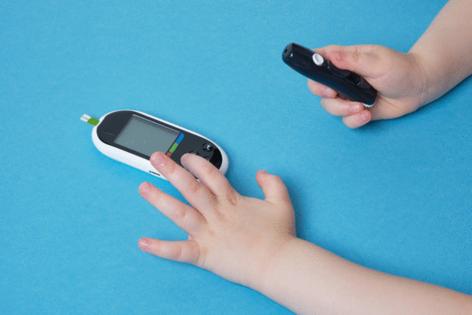AI-powered coach effective as a human in preventing diabetes
Published in News & Features
Patients who followed an AI coach from an app on their phone cut their risk of developing diabetes as much as those visiting a human coach, a Johns Hopkins study showed.
“We were really surprised at how almost identical both of the groups were in all of the measures,” said lead researcher Dr. Nestoras Mathioudakis, an associate professor of endocrinology at the Johns Hopkins University School of Medicine. “I think it’s great that we’ve demonstrated for the first time that AI-generated coaching can have this measure of success.”
His team found that 31.7% of patients referred to the AI-app and 31.9% of human-coached participants met benchmarks set by the Centers for Disease Control and Prevention to reduce their diabetes risk. Patients in both groups lost at least 5% of their weight, exercised 150 minutes or more per week, and reduced their blood sugar by at least 0.2%. They published their results in the Journal of the American Medical Association in October.
More than one in three American adults risk of developing type 2 diabetes within the next 5 years, according to the CDC. The condition, called prediabetes, is marked by high blood sugar levels that are below the threshold for type 2 diabetes. Family history, obesity, poor food choices and inactivity increase risk.
The Hopkins AI-based app provides advice modeled on the CDC’s diabetes prevention program, which includes six months of weekly group meetings run by a certified coach, and six months of less-intense, meetings, once or twice a month. The program has been proven to reduce the risk of developing type 2 diabetes by 58%, according to the CDC.
However, access barriers, such as scheduling conflicts and a lack of local program availability, limit their reach, Mathioudakis said.
“It is a lot to do,” he said. “The idea with the AI app is not to replicate all of the content. Rather, it’s to leverage the unique features of wearable devices and smartphones to achieve the same goals.”
The app, developed by Israel-based Sweetch Health, takes weight measurements directly from a digital scale provided to participants. It also analyzes nutritional information from photos of food taken by the patient. The specially trained artificial intelligence delivers “just-in-time behavior modifications” to encourage exercise and healthy eating,” Mathioudakis said.
He plans to build on the knowledge gained in this study by developing a larger-scale experiment that includes participants in different parts of the country to see how different cultures respond to the prompts.
“We need to understand which type of program is better for which individuals,” he said.
-----------
©2025 The Baltimore Sun. Visit at baltimoresun.com. Distributed by Tribune Content Agency, LLC.







Comments